Records Overview
- Records represent a customer that we intend to call at a specified date and time or on a regular schedule. A record can have multiple phone numbers, one for mobile, home, work, etc.
- Records can also optionally have a local time zone associated with them. If not, other methods will be used to determine an appropriate time zone for the record. See the Record Timezones section for more info.
- Records are associated with a dialer campaign.
Importing Records
-
Records can be created manually on the web interface.
-
A faster way to import records is by uploading a CSV file.

-
The required headers for a CSV file to import records into the system are:
customer_reference_id,agentand at least one phone number field (e.g primary, home, mobile, etc.). -
Data values for
agentmust be the email of an end user in the system -
The first row of the CSV file must contain the headers, and all subsequent rows must contain the data.
-
The
local_time_zonefield is optional, so it can be blank in the CSV file. However, if it is filled in, it must be a valid time zone. See the list of valid time zones in the Record Timezones section.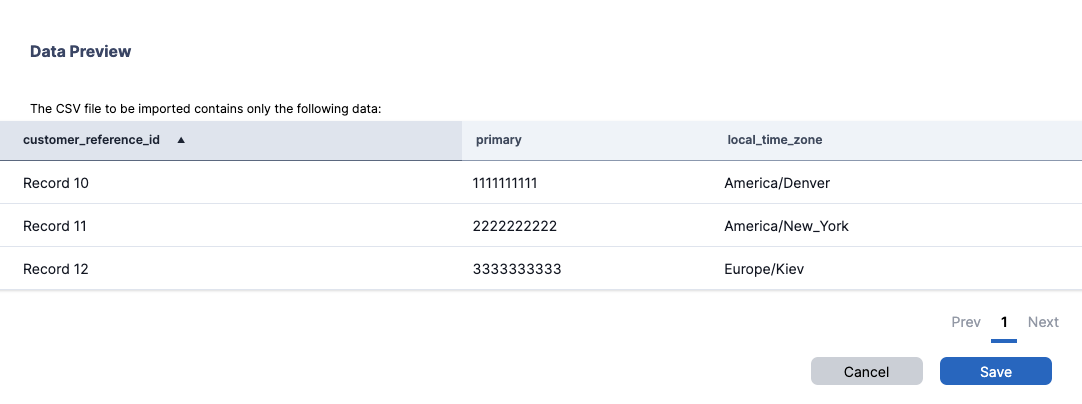
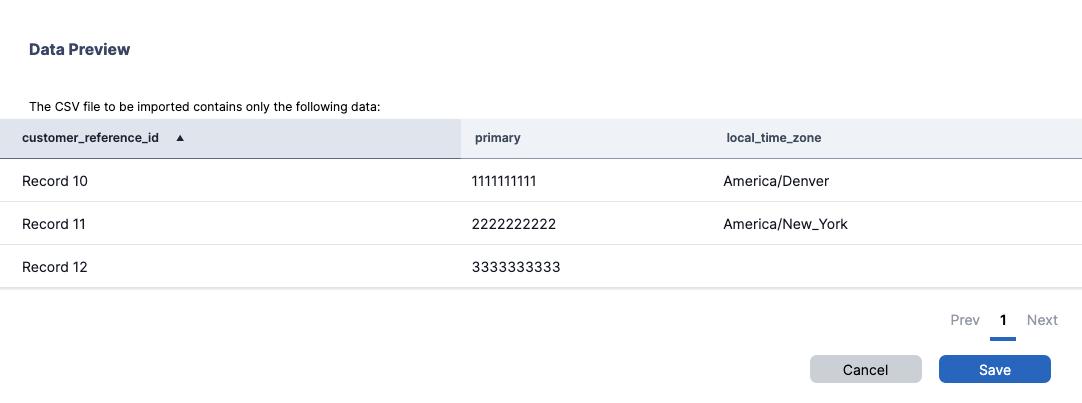
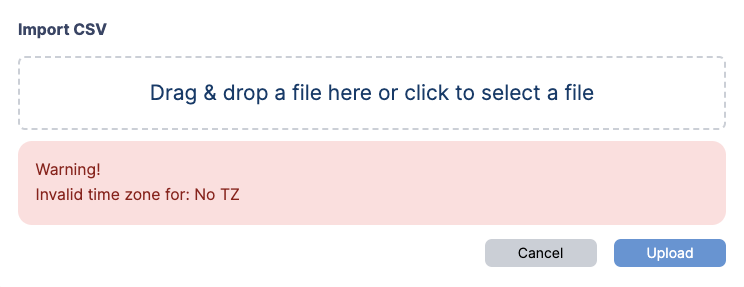
-
The
scheduled_forrepresents theScheduled call fordate time, the field is optional, so it can be blank in the CSV file. However, if it is filled in, it must be a valid date time. See an example list of valid date time formats in the Date and Time Formats for Campaign Records section. -
Imported files are saved and displayed in the Imports tab, where you can see the imported files and their details.
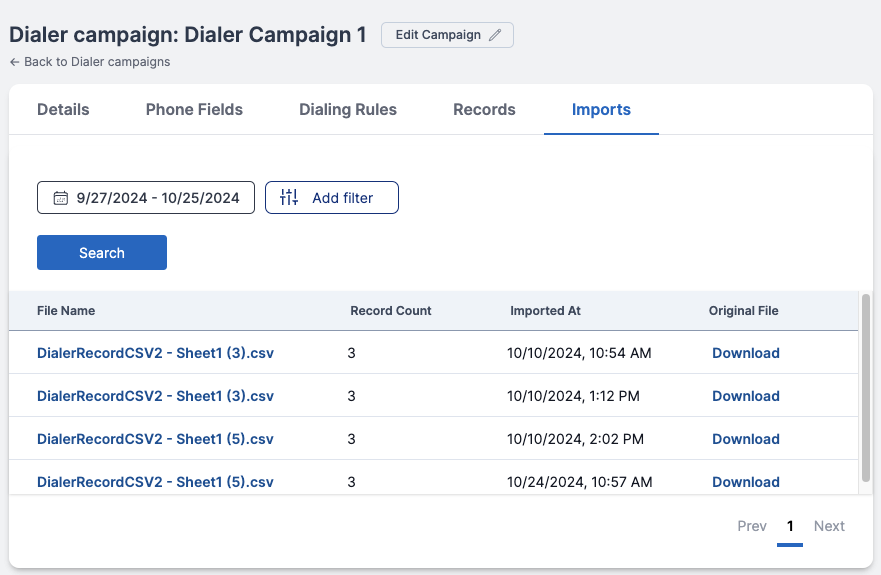
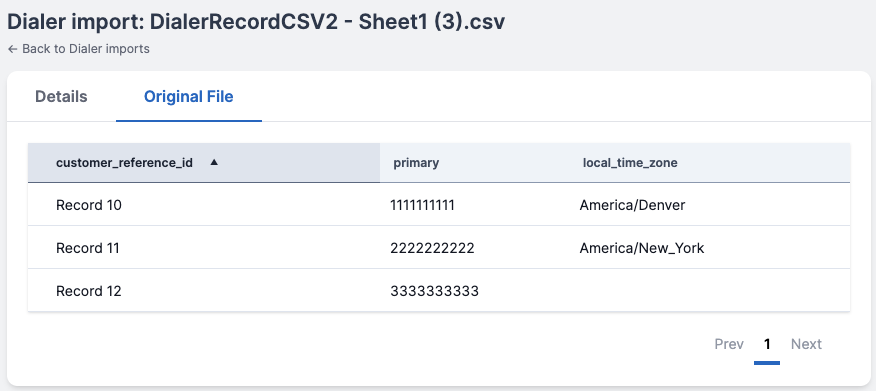

Duplicate Records
- If there are duplicate customer reference IDs in the file itself, the first occurrences will be used, and the others will be ignored.
- If there are customer reference IDs in the file that also show up in the table, you will have the option to:
- Skip the duplicates in your file, keeping the records in the table.
- Overwrite the duplicates in the table with the records in your file.
- Users will have the ability to enable or disable duplicate record detection for each campaign
Append/Replace
- Users will have the option to either replace the existing records in the table with the records in their uploaded csv file or to add the records in their file to the table without replacing. There is a checkbox in the upload modal for the replace option.

Editing or Deleting a Record
-
Locate the record
- Find the record you want to edit or delete on the table.

-
Edit a Record:
- Click the Edit button on the respective row.
- Update the record details as needed and click Save to apply the changes.
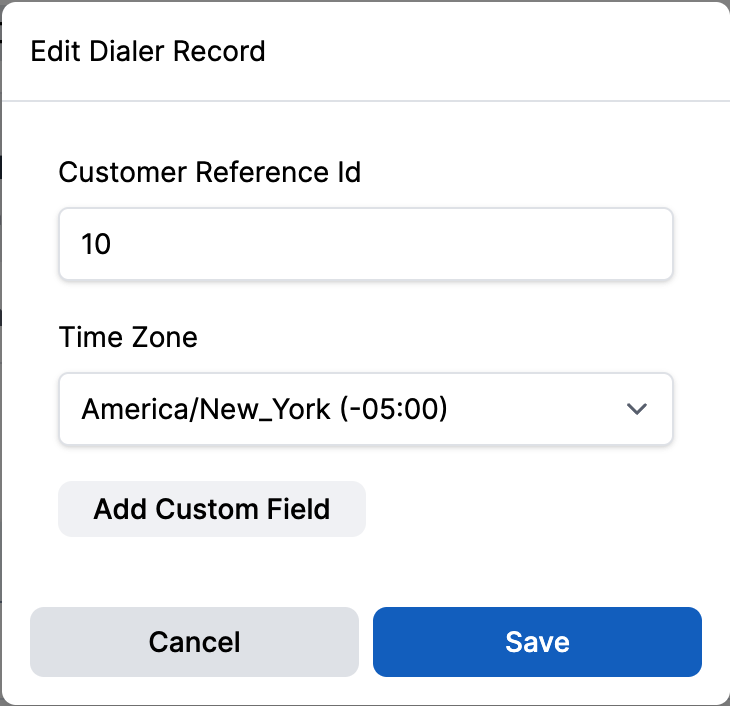
-
You can also add and delete custom fields to the record.
- Click the Add Custom Field button to open the field name and value pair.
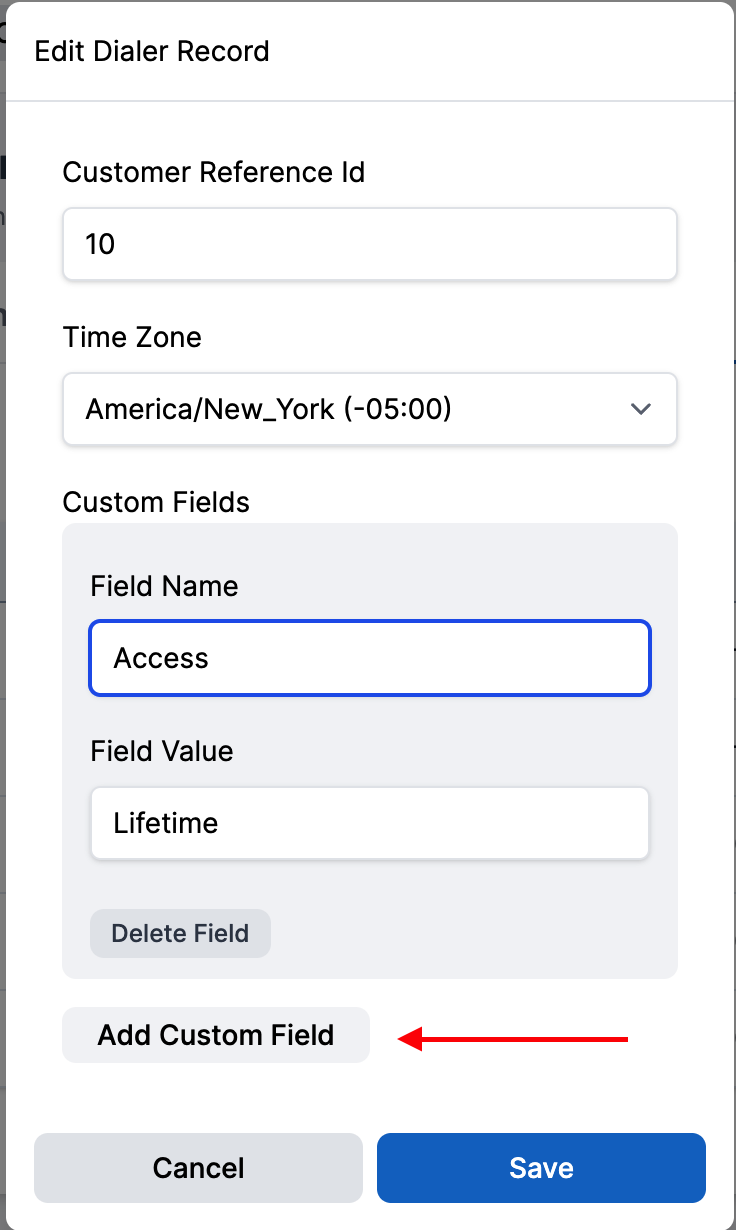
- Click the Delete Field button to remove the field name and value pair.
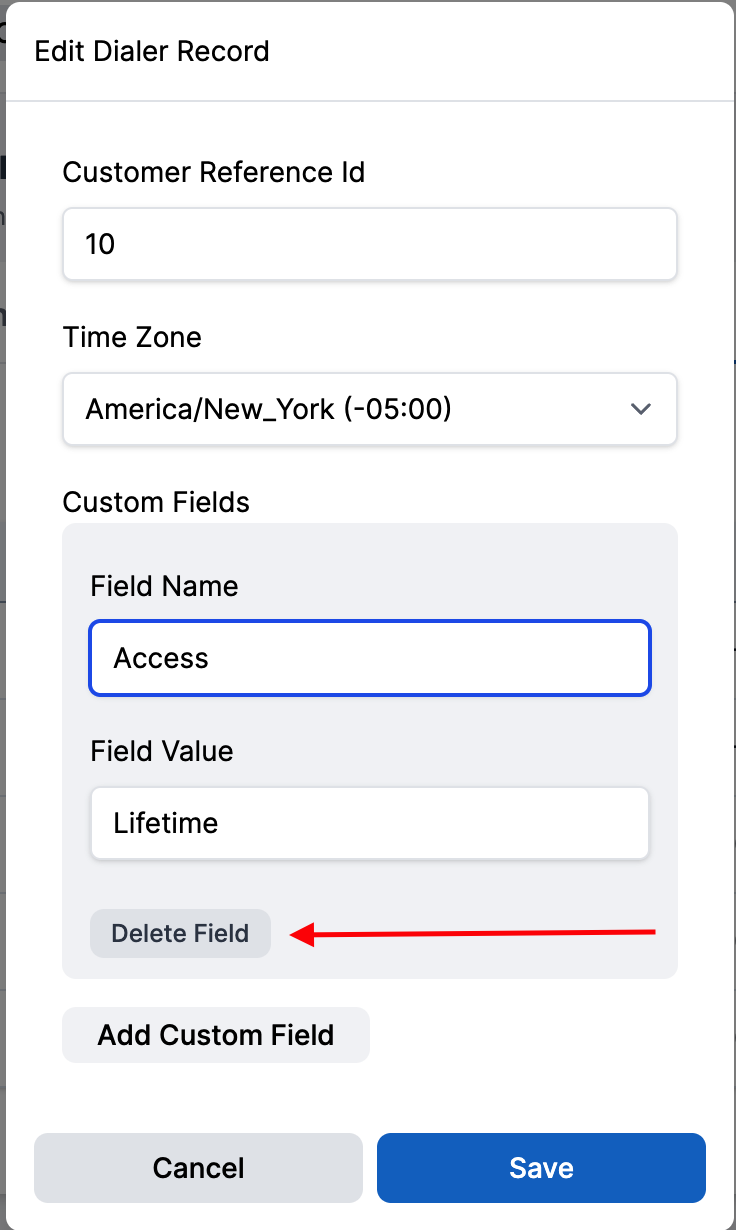
-
Delete a Record:
- Click the Delete button on the respective row.
- Confirm the deletion to remove the record permanently.
Callback
-
Locate the record
- Find the record you want to edit or delete on the table.

-
Add a Callback to the record:
-
Click the Callback button on the respective row.
-
Update the callback details as needed and click Save to apply the changes.
- By selecting the date and time on the calendar and time picker.
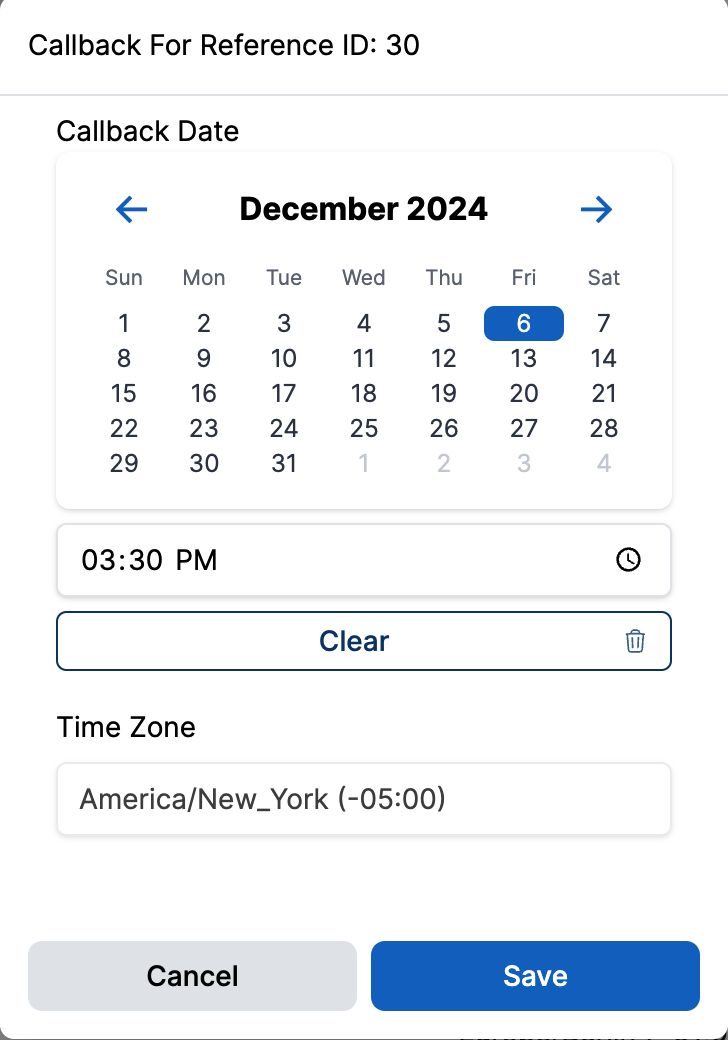
- Or by clicking Clear to remove the callback date.
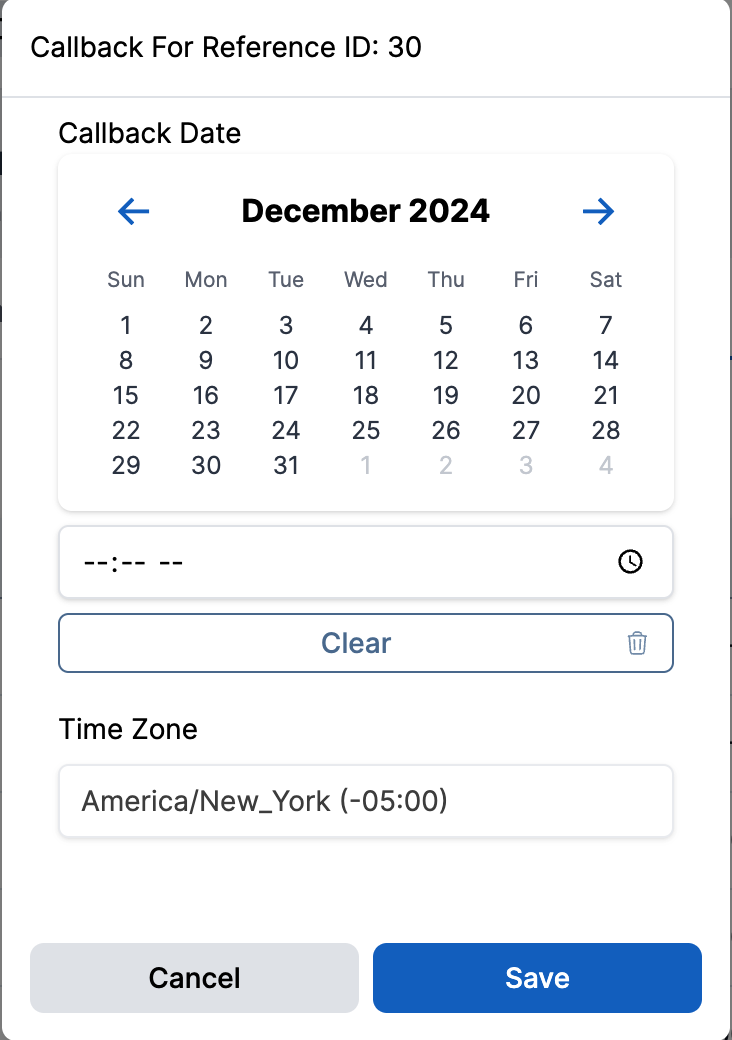
-
Dialable Records
- In order for a record's phone numbers to be dialed, the record must be dialable.
- For a record to be dialable, its
Scheduled call fordate or itsNext dialable atdate must be in the past, and it must have a status of eitherpendingorretry. - If the
Scheduled call fordate has a value, it takes precedence. Otherwise, theNext dialable atdate is used.

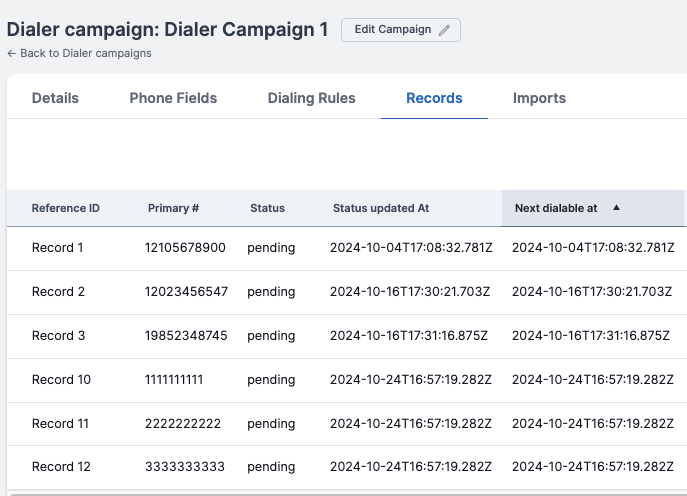
Dialer Phone Management
The dialer system manages phone numbers through two key components:
- Dialer Phone Fields: The categories or types of phone numbers
- Dialer Record Phone Numbers: The actual phone numbers
Dialer Phone Fields
Dialer phone fields are the categories or types that classify each phone number in the system.
Key Features
- Define the type of phone number (home, mobile, work)
- Link to scheduling systems for automated calling
- Connect directly to dialer campaigns
Scheduling Capabilities
- Set specific calling times for different phone types
- Create automated calling schedules
- Align calling patterns with campaign requirements
Dialer Record Phone Numbers
Dialer record phone numbers are the actual phone numbers that the system can call. Each dialer record can have multiple phone numbers associated with it.
Key Features
- Multiple numbers can be linked to a single dialer record
- Each number is categorized by type (home, mobile, work)
- Numbers can be added to Do Not Call (DNC) lists for compliance
Example
A customer record might have:
- Home: (555) 123-4567
- Mobile: (555) 987-6543
- Work: (555) 246-8135
How They Work Together
- Each phone number in the system is assigned a dialer phone field.
- The field determines when and how the number can be called.
- Campaign settings use these fields to manage calling strategies.